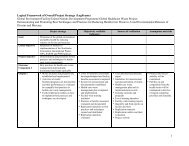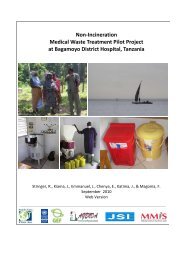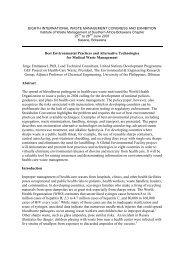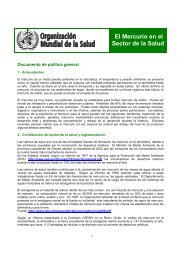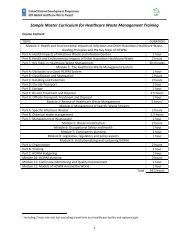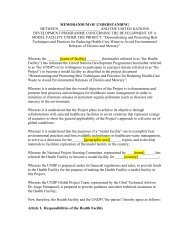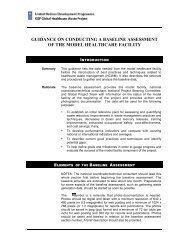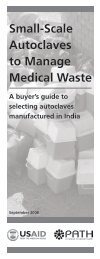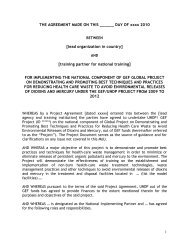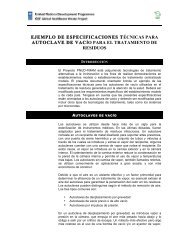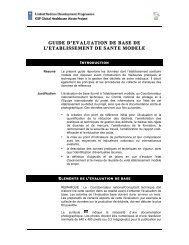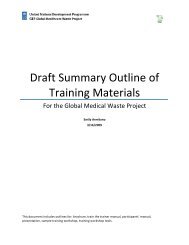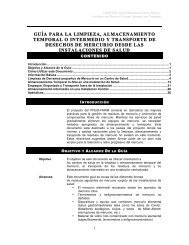Latvia
Latvia
Latvia
Create successful ePaper yourself
Turn your PDF publications into a flip-book with our unique Google optimized e-Paper software.
Health systems in transition<br />
<strong>Latvia</strong><br />
All educational programmes are accredited. Social care professionals are taught<br />
in P. Stradins Health and Social Care College and in Daugavpils College of<br />
Medicine. The duration of studies is two years.<br />
Continuing professional development of health care practitioners can be<br />
undertaken under their own initiative and expense. To work as an independent<br />
practitioner, it is necessary to receive certification and re-certification as<br />
described above. Re-certification takes place every five years and depends<br />
upon successfully undertaking and passing specific courses organized by the<br />
professional associations. The courses are offered in the Institute of Post-<br />
Graduate Education of Medicine, University of <strong>Latvia</strong> or on the premises of<br />
particular departments of multi-profile hospitals.<br />
Regarding educational standards, within the Riga Stradins University and<br />
Faculty of Medicine of the University of <strong>Latvia</strong>, all programmes of study are<br />
accredited by the Ministry of Education and Science. The minimum requirements<br />
for a doctor’s professional qualifications are defined by the “Regulations of<br />
the Cabinet of Ministers on the Minimum Requirements of the Educational<br />
Programme to Receive the Doctor’s Professional Qualification” (in force<br />
since July 2002). The minimum requirements for professional qualifications<br />
of dentists, pharmacists, nurses and midwives are defined by the “Regulations<br />
of the Cabinet of Ministers on the Minimum Requirements of Educational<br />
Programmes for Dentists, Pharmacists, Nurses and Midwives Professional<br />
Qualification” (in force since February 2002).<br />
The programmes of the different courses are worked out by the respective<br />
professional associations and are approved within joint meetings of the<br />
associations. There are no differences between public or private institutions in<br />
the training requirements for health professionals.<br />
Registration/licensing<br />
Article 26 of the “Law on Medical Treatment” (1997) determines that only<br />
approved and certificated health care practitioners can provide health care<br />
services independently and in accordance with their respective competency.<br />
Health care practitioners are entered into the unified nationwide information<br />
system, the Register of Medical Persons, in accordance with the Rules of the<br />
Cabinet of Ministers on the “Establishment, Fulfilment and Maintenance of<br />
the Register of Medical Persons” (in force since October 2005). This Register<br />
is maintained by the HSMTSA, and the Centre of Professional Education of<br />
Medicine.<br />
Health care practitioners receive the registration certificate of a “Treatment<br />
Person”, which is proof that the individual has been entered into the Register.<br />
161



